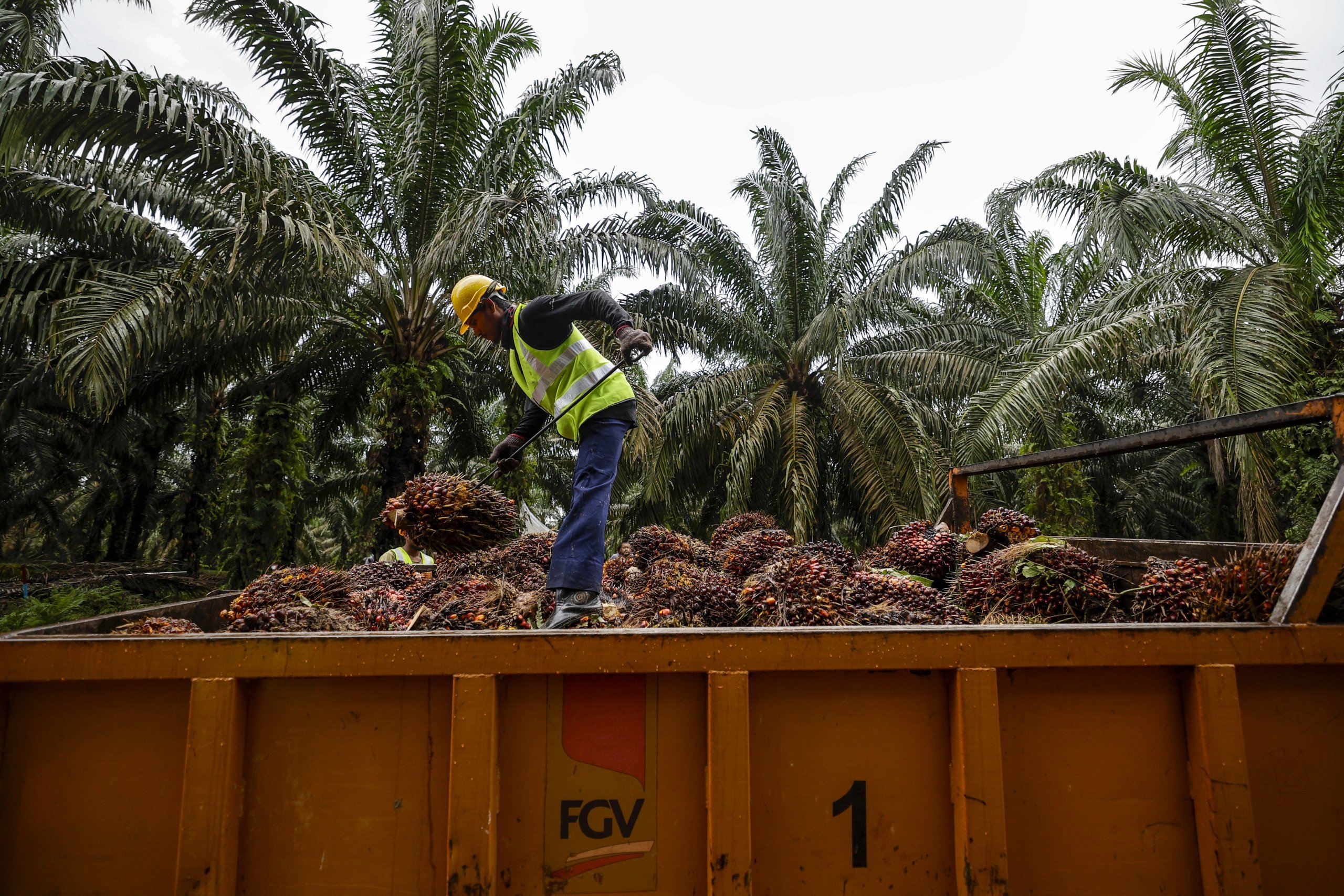
Doppa president Napolean R Ningkos said the achievements of the Dayaks in Sarawak, who have chosen to embrace the palm oil industry, are now threatened by the increasing call of the EU to ban palm oil imports. – Bernama photo
MIRI (April 22): Sarawak Dayak Oil Palm Planters Association (Doppa) has hit out at what it sees is an ongoing campaign by the European Union (EU) to exclude indigenous Dayak smallholders from the entire palm oil supply chain.
Doppa president Napolean R Ningkos said the achievements of the Dayaks in Sarawak, who have chosen to embrace the palm oil industry, are now threatened by the increasing call of the EU to ban palm oil imports.
“The EU’s ambassador to Malaysia has denied that there is a ban on palm oil imports to the EU. Yet we see that member states of the EU have banned palm oil from subsidies granted to sources of renewable energy.
“The Dayak people share the EU’s vision for a sustainable society. Some of the indigenous Dayak smallholders have even gone the expensive way of certifying their farms under the RSPO (Roundtable on Sustainable Palm Oil) to share their common views for sustainable palm oil.
“Unfortunately, most of the indigenous Dayak smallholders in Sarawak cannot afford to pay for NGO certifications. Given the choice of whether to spend our hard-earned income on NGO certification or our children’s college funds, we would prefer to save for our children’s education,” he said in a statement.

Napolean R Ningkos
At the same time, he lauded the call for the inclusion of indigenous people to fight climate change, which was made at the 15th Conference of the Parties (COP15) to the United Nations Convention on Biological Diversity (CBD) in Montreal, Canada at the end of last year.
He said based on data from the Malaysian Palm Oil Certification Council (MPOCC) at the end of 2022, more than 40,500 independent smallholders are covering an area of more than 234,812 hectares in Sarawak with oil palm.
These smallholders represent 27 per cent of the state’s total agriculture area, he added.
“For a long time, the indigenous farmers whose main livelihood is farming have been ignored in every discussion of their role in aspects related to climate change amongst other major issues.”
Napolean said the traditional Dayak culture and livelihoods are perfect examples of a sustainable society where they live within the means of what nature provides.
“It has therefore saddened and angered the Dayak communities to see an ongoing campaign by the EU to exclude indigenous Dayak smallholders from the entire palm oil supply chain, irrespective of the fact that they have already been fully involved in cultivation and on most of the same land for generations.
“Our ancestors depended on shifting cultivation to grow rice and other food crops. Once the lands were depleted of nutrients, they burnt the residues of the last crop to provide nutrients to the soil while they cleared new areas for farming,” he said.
He said shifting agriculture, especially with the burning of spent fields, has been discouraged by the Sarawak government as the state looks to reduce Malaysia’s carbon emissions and establish land rights among the many indigenous tribes, some of which were nomadic.
Thus, in this situation where Dayak farmers must rely on small pieces of land for food and income, he said the Dayaks have adapted to market conditions just as in the Western world.
“Many Dayak farmers moved from rice cultivation to rubber cultivation when rubber fetched good prices due to foreign demand. Unfortunately, the rubber industry also crashed, driving the Dayak farmers into poverty.
“Incidentally, with the move from shifting cultivation to tree crops like rubber and later to oil palm, the natives have in fact helped reduce adverse impact on the environment. For once, we have a crop that has consistent foreign demand, which pays well and can be harvested at least once a month,” he said.
He stressed that there are many misperceptions of palm oil which have clearly created a negative opinion of the crop today.
The EU, he said, should also listen to the voices of European industries like the European Vegetable Oil and Protein Meal Industry (Fediol), which is urging the policymakers of the EU to engage with palm oil-producing countries to find a common path where the needs of the Union for food, can be met.
“Without stakeholder engagement, the EU’s demands on the sustainability of palm oil for whatever end use, have made it impossible for indigenous Dayak landowners to be a part of the sustainability journey.
“The case in point is the adoption of a ‘No Deforestation’, ‘No Peat’, ‘No Exploitation’ (NDPE) commitment by the Malaysian Sustainable Palm Oil (MSPO) standards with a cut-off date of Dec 31, 2019, which we see as a commitment to appease the EU.
“While this may meet the demands of the EU for sustainable palm oil production, it will exclude the indigenous Dayak farmers from joining the sustainable society for the future,” he said.
Therefore, he said Doppa, representing the indigenous Dayak smallholders, has appealed to the MSPO standard for an exclusion for indigenous Dayak farmers in their NDPE commitment, adding that Dayak farmers will continue to fight for their legal right to use their ancestral lands for oil palm cultivation.
“Doppa hopes that the EU will extend the same rights to the indigenous Dayaks of Sarawak and, together, contribute to a sustainable global community. Dayak-produced palm oil is a sustainable source of edible oils for the citizens of the EU as certified by the MSPO standards.
“Doppa urges the EU with their commitment to the United Nations Sustainable Development Goals to respect the rights of indigenous people and to engage with the indigenous Dayak palm oil smallholders in the EUs’ goals for a sustainable planet,” he said.
